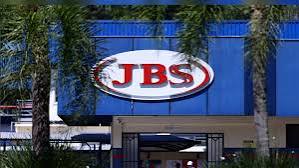CSOs urge FG to disclose details of MoU with JBS

Civil Society Organisations (CSOs) have called on the Federal Government to make public the full details of the Memorandum of Understanding (MoU) recently signed with global meat-processing giant, JBS, before the company begins operations in Nigeria.
The appeal was made during a one-day stakeholders’ workshop in Calabar, which examined the potential impacts of introducing industrial animal farming into the country’s agricultural sector.
JBS, headquartered in São Paulo, Brazil, is the world’s largest meat corporation with operations across five continents.
However, the firm has in recent years faced a series of allegations and legal actions relating to environmental degradation, labour rights violations, and misleading sustainability claims.
At the event, Ms. Mariann Bassey-Olsson, Deputy Executive Director of Environmental Rights Action (ERA), cautioned that JBS’s entry into Nigeria could have far-reaching consequences for both the environment and local farmers if transparency and due diligence were not ensured.
Bassey-Olsson demanded that the government conduct and publish a comprehensive Environmental Impact Assessment (EIA) before granting the company operational rights.
“Nigerians have a right to know the full content of the agreement and the potential risks involved.
“We have seen multinational ventures leave communities polluted and economically weakened. This must not be repeated, ” she said.
She also warned that while such corporations often promise employment opportunities, they typically reserve managerial roles for their nationals and offer only menial jobs to local workers.
“Our lives matter. Development must place people over profit. We have Greenpeace reports linking JBS to pollution, tax evasion, and unethical cattle sourcing in Brazil. These red flags should not be ignored,” she added.
Also speaking, Ms. Joyce Brown, Director of Programmes at the Health of Mother Earth Foundation (HOMEF), raised concerns that large-scale industrial animal farming could lead to land grabbing, water pollution, and the displacement of smallholder farmers.
According to her, foods produced under such systems are often destined for export rather than local consumption, which undermines food security and leaves host communities with minimal benefits.
“Before any investment is approved, there must be full environmental assessments, strict regulations, and genuine community consultations,” Brown stressed.
Offering a different perspective, Dr. Jude Udiandeye, Director of Veterinary Services at the Cross River Ministry of Livestock and Aquaculture, argued that industrial-scale livestock production could help bridge Nigeria’s food supply gap—provided it is well regulated.
He noted that Nigeria’s growing population can no longer rely solely on subsistence farming, but he emphasised the need for stringent monitoring and enforcement of environmental standards.
Similarly, Mr. Bassey Emogor, Programme Manager at the Cross River Agricultural Development Programme (ADP), underscored the importance of transparency and fairness in land acquisition for multinational investors.
He urged companies to work closely with state agricultural agencies before acquiring land to ensure that local farmers’ rights and livelihoods are protected.
In November 2024, the Federal Government signed a letter of intent with JBS for a $2.5 billion investment in Nigeria’s livestock sector.
The deal reportedly includes the construction of six modern meat-processing plants across different parts of the country.
However, civil society groups have continued to press for clarity and accountability, warning that secrecy around the terms of such large-scale investments could expose Nigeria to environmental, social, and economic vulnerabilities.



